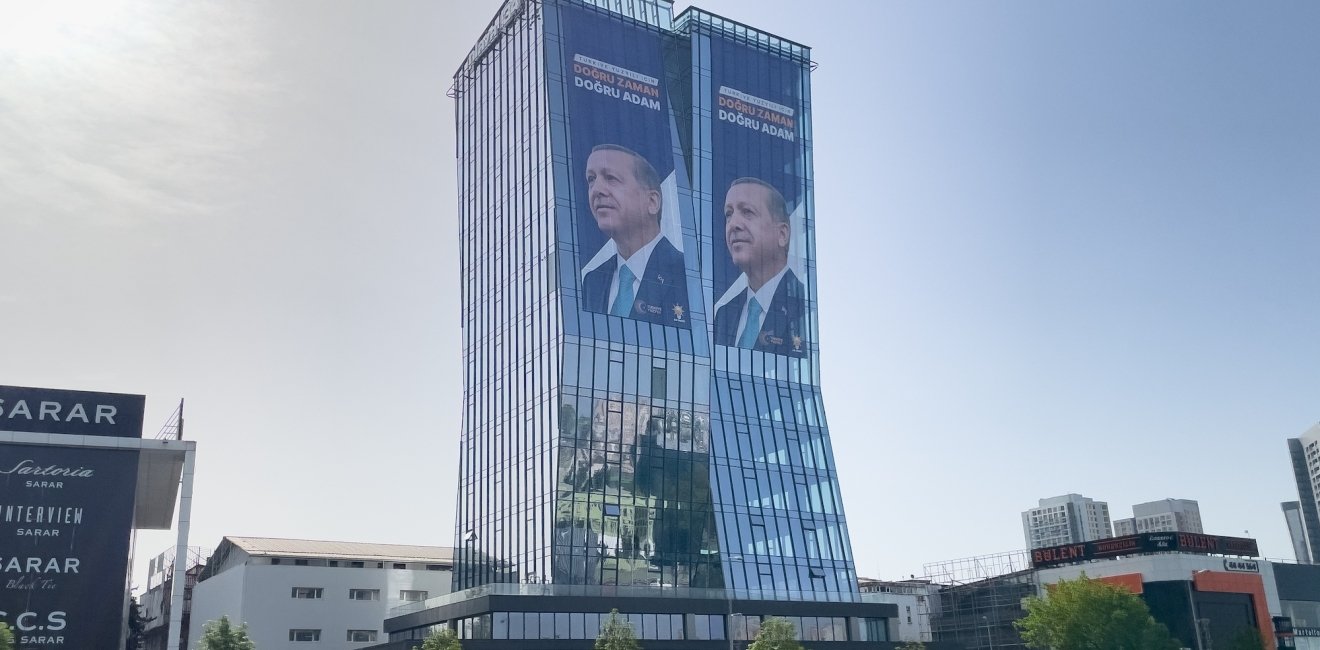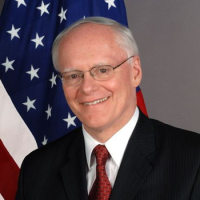President Recep Tayyip Erdogan has just won an unprecedented third term in the face of tough competition in Turkey’s presidential election. With that win, and a majority in the Turkish parliament, Erdogan is likely to remain Turkey’s leader, and a thorn in the side of the West, for years to come. But Turkey, with its strong G-20-sized economy, diplomatic expertise, military strength and above all, location, is absolutely essential during this perilous time.
As the Biden administration states in its October 2022 National Security Strategy, “we are in a strategic competition to shape the future of the international order,” and thus “we will partner with any nation that shares our basic belief that the rules-based order must remain the basis for global peace and prosperity.” Turkey meets that ‘any nation’ criteria, albeit with caveats and, given its importance, dealing effectively with it in this strategic competition is critical.
But that will require an “engage, understand, and overcome” policy to deal with obstacles to positive relations: Erdogan himself, underlying issues, and abiding mindset frictions.
Trouble in the near abroad
Engaging with Erdogan is the most important but most difficult step. He, like most Turks, harbors deep and justified (to some degree) resentment of American and European treatment over the past twenty years. But unlike many Turks, Erdogan is more anti than pro-western in cultural and emotional terms.
The global situation is so dangerous, and Turkey so important, that the Biden administration, particularly the president himself, must engage with [Erdogan].
The good news is that he is transactional. However, Washington and Brussels expect ‘subordinate’ partners not to be transactional but compliant, at least publicly, something Erdogan does not do well. Nevertheless, the global situation is so dangerous, and Turkey so important, that the Biden administration, particularly the president himself, must engage with him; Biden’s call to Erdogan on May 30 was an important first step.
Engagement is only a necessary, not sufficient, approach. Problems with Turkey beyond Erdogan also flow from issues mainly in Ankara’s ‘near abroad,’ which have long brought Turkey repeatedly into conflict with Washington and the EU. Moreover, solving or even managing tensions is hampered by hard-wired, long-term mindsets in Turkey and the West. Maintaining good relations with Ankara thus requires the West at least to understand those issues and overcome entrenched mindsets. While the EU has closer economic ties and is more dependent on Turkish security decisions, its diplomatic weaknesses (i.e. Greece and Cyprus) suggest that these tasks will require a Washington lead.
However, one problem is the near constant tendency in American foreign policy to downplay states’ near abroad security concerns until it is too late: the 1950 march to the Yalu; Iran countering the US presence in Iraq; or Pakistan undercutting America’s Afghanistan mission. Thus to deal productively with Ankara on near abroad issues such as Russia, the PKK, Greece and Cyprus, and the Caucasus, it is important to understand how Ankara sees them.
The PKK
Turkey is existentially opposed to Russian expansionism, as seen since 2020 by its actions against Russia in northwest Syria, Libya, the Caucasus and most importantly, Ukraine. But Turkey also has critical interests and vulnerabilities managing Moscow that require extreme care. Its two-way trade with Russia is over $60 billion, twice that with the United States, and includes 40-50 percent of gas imports—Turkey’s main power source.
Moreover, Russia (and Iran) have proven capability to exploit Turkey’s biggest internal security concern, the PKK. Thus, on Russia policy, from NATO’s standpoint the Turkish glass is only two-thirds full. But trying to fill it, say demanding Turkey impose NATO sanctions on Russia or reverse the S-400 purchase, will generate constant headaches for little gain.
The PKK, a Turkish-Kurdish terrorist insurgent movement active since 1984, is the most intractable US-Turkish issue. Unlike in neighboring countries where Kurds are concentrated in border regions, much of Turkey’s large Kurdish population (up to 20 percent overall) is scattered about the country and integrated with the rest of the population. Thus, were the PKK to succeed with its break-away agenda, Turkey would face not another moment like Kosovo in 1999, but a Rwanda in 1993.
Furthermore, the PKK has military forces across the border in Iraq and Syria, adding to the threat. There is some irony to the prominence of this issue in bilateral relations as the United States has long branded the PKK a terrorist movement and assisted Ankara against it. The shift came in 2014 after the US supported the Syrian PKK military offshoot YPG (later renamed the Syrian Democratic Forces, or SDF, to camouflage its PKK links) against the Islamic State. This was not initially a major problem; Ankara then had a ceasefire with the PKK and was carrying on a dialogue with YPG-associated Syrian Kurds.
Northeast Syria
This all changed in 2015-16, due to political changes in Turkey that collapsed the PKK ceasefire and produced a much harder anti-PKK position. Meanwhile, American ambitions for the SDF to spearhead a 100,000 strong force to take down the Islamic State’s Euphrates strongholds led to its control of 20 percent of Syria and millions of Syrians. This generated considerable tension in bilateral relations, leading to an American commitment that supporting the SDF would only be “tactical, temporary and transactional,” with no larger vision for the SDF “mini-state” which Washington largely created.
The Turks didn’t buy that temporary and transactional stuff, noting that despite commitments by then Vice President Biden and later Secretary of State Mike Pompeo, Washington did not compel the SDF to withdraw from the town of Manbij across the Euphrates to the west. Rather, it started arming the SDF in 2018 after the Islamic State had largely been defeated and positioned American troops along the Turkish border seemingly as a screen (although the US had never committed to militarily oppose a Turkish incursion).
[The ceasefire] is holding, but the issue poisons relations as the fate of the SDF, and its relations with Ankara, Damascus and Washington, are unclear.
In short, the Washington message was hopelessly mixed. The result was a Turkish military incursion into SDF territory in 2019, which risked the whole US-SDF effort against the Islamic State, until a ceasefire was negotiated with Erdogan. It is holding, but the issue poisons relations as the fate of the SDF, and its relations with Ankara, Damascus and Washington, are unclear.
Cyprus and the Caucasus
Greek-Turkish tensions have historical roots but currently hinge on sovereignty granted to the Greek Aegean islands by international agreements between 1914 and 1948, and the 1960 London-Zurich Accords establishing Cyprus’ independence.
Those agreements however protected Turkish interests like Aegean islands demilitarization and Cypriot Turkish minority rights. But since the 1970s, mainland and Cypriot Greeks have challenged elements of those international arrangements, generating Turkish reactions, including the 1974 Cyprus invasion to prevent union with Greece, and air and sea freedom of navigation operations in the Aegean.
More recent problems have emerged with seabed gas rights. But Turkey’s argument that it’s just pushing back on treaty challenges is repeatedly undercut by its aggressive actions—from a second Cyprus offensive in 1974 to overflights of unquestioned Greek territory and a drumbeat of war threats.
In the Caucasus, Turkish interests containing Russian and Iranian expansion and supporting Azerbaijan, with whom it has ethnic, linguistic, geostrategic, and energy relations, collide with Armenia, which is still at odds with Baku and seen as too close to Moscow and Tehran.
But the ability to explain all these issues is severely undercut, even beyond Erdogan’s unacceptably aggressive tone, by underlying mindset frictions. On the Turkish side, these include a mix of insecurity and condescension (Turkish officials are world-class at mastering portfolios), as well as overly one-sided demands.
Understand and Overcome
Washington and Brussels’ ability to understand the Turkish viewpoint is hampered by systematic opposition from various lobbies, ranging from ethnic Armenian, Greek, and Kurdish groups, to anti-Erdogan neo-conservatives, defense officials miffed at the S-400 purchase and actions in Syria, and human rights organizations.
Turkish public opinion has become far more anti-western, limiting government flexibility. Progress on specific issues thus can only be sustained if Washington can overcome these obstacles.
Even when Turkey has responded to Western requests, such as under Turgut Ozal in the 1990s or Erdogan initially by accepting the Annan Cyprus plan, the lobbies persist in demanding surrender on any number of issues. In response, Turkish public opinion has become far more anti-western, limiting government flexibility. Progress on specific issues thus can only be sustained if Washington can overcome these obstacles.
Fortunately, Erdogan’s electoral victory offers the United States and Turkey a chance to start anew. Beyond rapid, highest level engagement, Washington and Ankara should work on quick wins which are now feasible: NATO accession for Sweden, F-16 sales, ceasefire with the PKK (or at least continued Turkish restraint in Northeast Syria), calm with the Greeks, and progress on recent Armenian-Azeri rapprochement promoted by Secretary of State Tony Blinken. Given the obstacles above to better relations, there are no guarantees, but neither Washington nor Ankara can afford to ignore these obstacles to satisfactory bilateral relations.
The views expressed in this article are those of the author and do not express the official position of the Wilson Center.






